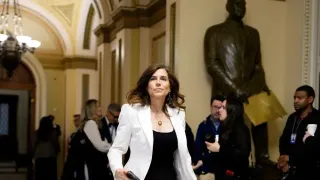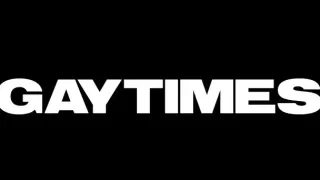
Jul 29
Kansas Public Universities Shutter LGBTQ+ and DEI Programs Following New State Law
READ TIME: 3 MIN.
In a significant policy shift, public universities across Kansas have started closing LGBTQ+ resource centers and dismantling Diversity, Equity, and Inclusion (DEI) programs to comply with a new state law that prohibits such initiatives. The law, passed as part of the state's budget in Senate Bill 125 earlier this year, requires all state agencies, including public universities, to eliminate any positions, mandates, trainings, grants, or contracts related to DEI by July 31, 2025 .
Kansas State University (K-State) announced the closure of its Spectrum Center, a resource hub that had served LGBTQ+ students for years. In a message to the university community, K-State Vice President for Student Life Thomas Lane stated, “With thoughtful consideration and deep respect for our community, I write to inform you that the Spectrum Center will cease operations” on July 31 .
Lane’s message acknowledged the center’s legacy as “a vital hub for connection, advocacy and education,” and credited its staff and students for contributing to K-State’s national reputation as a welcoming environment for LGBTQ+ people. He emphasized the university’s intention to ensure that the “spirit of welcome” would continue, even after the center’s closure .
At the University of Kansas (KU), leadership issued a directive for all staff and student employees to remove gender-identifying pronouns and any references to “gender ideology” from email signatures and official university communications. The move was part of a broader compliance effort that included eliminating DEI offices and programs across the institution. A letter from Chancellor Doug Girod and other university leaders explained, “Our community is founded on the respect and support we each provide to others,” while noting that the university would continue to promote belonging in the wake of these changes .
The Kansas Legislature’s budget provision broadly targets any initiatives perceived as DEI-related. According to the Kansas Board of Regents’ directive, universities must abolish “any positions, policies, preferences, and activities pertaining to DEI,” as well as remove DEI mandates from all areas of university life .
The law’s language also explicitly requires eliminating the use of gender-identifying pronouns and “gender ideology” from any form of university communication, which has led to the removal of such identifiers from email signatures, web pages, and digital platforms .
In response, resource pages for DEI offices, LGBTQ+ student services, and related outreach have been removed or replaced. For example, KU’s Office of Diversity, Equity, Inclusion and Belonging has been replaced by a new Impact and Belonging team, and information about the Toni Johnson Center for Racial and Social Justice is no longer accessible on the university website .
The elimination of LGBTQ+ resource centers and DEI programs has prompted concern from students, faculty, and advocacy organizations. For many on campus, resource centers like the Spectrum Center were essential spaces for support, community-building, and access to affirming services. The closures raise questions about how universities will continue to meet the needs of LGBTQ+ students, particularly those who rely on these services for mental health support, social connection, and safe spaces .
While university leadership has expressed a commitment to fostering a welcoming environment, the removal of institutional supports has led some community members to worry about the practical effects on campus life and student well-being. National LGBTQ+ advocacy groups have also raised alarms, with the Human Rights Campaign and others criticizing such laws for creating barriers to inclusion and safety on college campuses .
As the July 31 deadline approaches, Kansas joins a growing list of states enacting restrictions on DEI programs in higher education. The full impact of these changes remains to be seen, but students and advocates are mobilizing to find new avenues for support and community. LGBTQ+ groups both within Kansas and nationwide are watching closely, prepared to respond to evolving needs as universities adjust to the new legal landscape .






